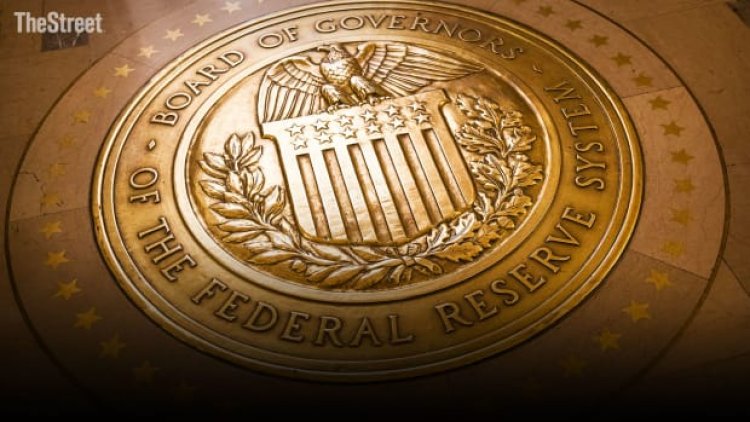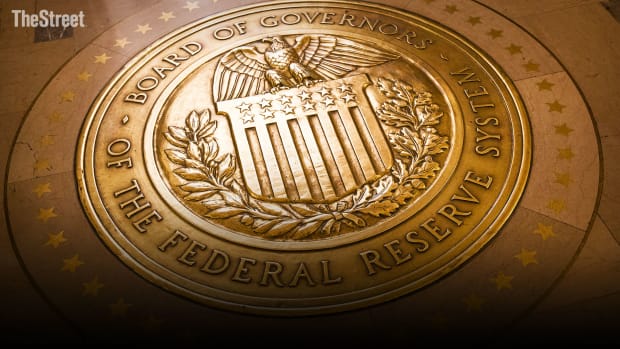Fed's Hawkishness Spells Trouble for Stocks, Bonds
If you're buying short-term bonds to hold until maturity, you can benefit from the Fed's higher rates.

If you're buying short-term bonds to hold until maturity, you can benefit from the Fed's higher rates.
The outcome of the Federal Reserve’s Dec. 13-14 meeting doesn’t bode well for financial markets and the economy.
The Fed raised the federal funds rate target by 50 basis points to a range of 4.25% to 4.5%, as expected. The central bank left open the possibility that the next rate hike (Feb. 1) could shrink to 25 basis points.
But Fed Chairman Jerome Powell indicated the most important issue is how high the fed funds rate ends up, not how much the central bank lifts it at individual meetings.
Fed officials now have a median forecast for fed funds to end next year at 5.1%, up from their September projection of 4.6%.
They lowered their median forecast for 2023 GDP growth to 0.5% from 1.2% in September. They boosted their forecast for inflation (the personal consumption expenditure price index) to 3.1% next year from 2.8% in September. That index is the Fed’s favored inflation indicator.
And central bank officials offered a median prediction of 4.6% for unemployment, up from 4.4% in September. Unemployment registered 3.7% in November. Brooks Kraft/ Getty Images
Bad News for Stocks, Short-Term Bonds
All those numbers are negative for stocks and short-term bonds. As for stocks, high interest rates and weak economic growth depress earnings. And higher short-term interest rates by definition mean lower short-term bond prices.
Long-term bond prices might benefit from Fed policy. That’s because the tightening generates economic weakness, which pushes long-term yields down.
Already, the Treasury yield curve is inverted, generally a signal of recession. An inverted yield curve means short-term yields are higher than long-term yields.
Maria Vassalou, co-chief Investment officer of multi-asset solutions at Goldman Sachs Asset Management, wasn’t surprised by the Fed’s pronouncements Wednesday.
“The Fed’s more hawkish projections than what the market has been pricing for the terminal [fed funds] rate next year are consistent with [our] view … that the Fed will have to raise interest rates to 5% or higher and keep them there to anchor inflation expectations close to their target of 2%,” she said in a commentary.
The PCE price index climbed 6% in the 12 months through October, and the consumer price index gained 7.1% in the 12 months through November.
No Rate Cut in 2023
The Fed’s forecast dashed the expectations of some that the Fed would lower rates late next year.
“The market’s optimism about a lower terminal rate and cuts in the second half of next year have been working against the Fed and are unrealistic in our view,” Vassalou said.
That’s “unless we see a financial crisis or drain of liquidity in the markets that will necessitate the Fed stepping in to lower rates,” she said.
“Monetary policy is still not restrictive. It may become restrictive next year if inflation falls below the level of the fed funds rate and the Fed stays put.”
Further, “we expect that the Fed will stay in restrictive policy for a while unless the effect on real GDP growth and unemployment becomes particularly severe and inflation has fallen close to target,” Vassalou said.
“While inflation now shows a downward path, levels … are still too high and very far away from target for the Fed to signal any softening…. We don’t expect any let up from the Fed until inflation is at least in the 3% range. A mild recession is our central scenario for next year.”
Of course, the Fed's rate hikes are positive for those of you investing in money-market funds, savings accounts, certificates of deposit and short-term bonds, assuming you hold them to maturity. That's because you'll earn higher interest rates on these investments.
What's Your Reaction?



























































